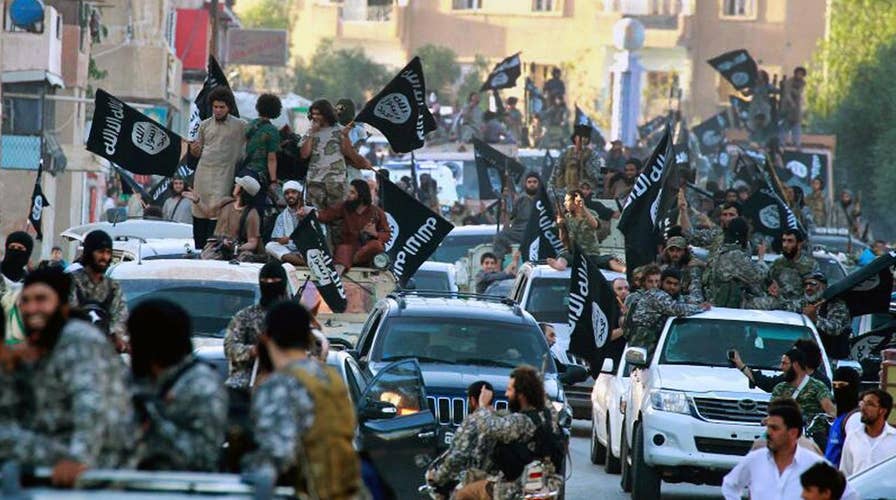Trump takes credit for success in fight against ISIS
President says he has 'totally changed the military'; former Green Beret Michael Waltz weighs in.
In the span of nine months, ISIS has gone back to being the "JV team."
The Islamic State, a day after being ousted from its defacto capital of Raqqa, is losing its foothold in the two nations where it established its bloody roots and grew from former President Barack Obama's infamous "JV team" into an unrelenting exporter of global terror.
Once the owner -- or captor -- of a swath of land in Syria and Iraq, the militant group has lost control of its two key cities -- and at least half of the original territory it once brazenly roamed.
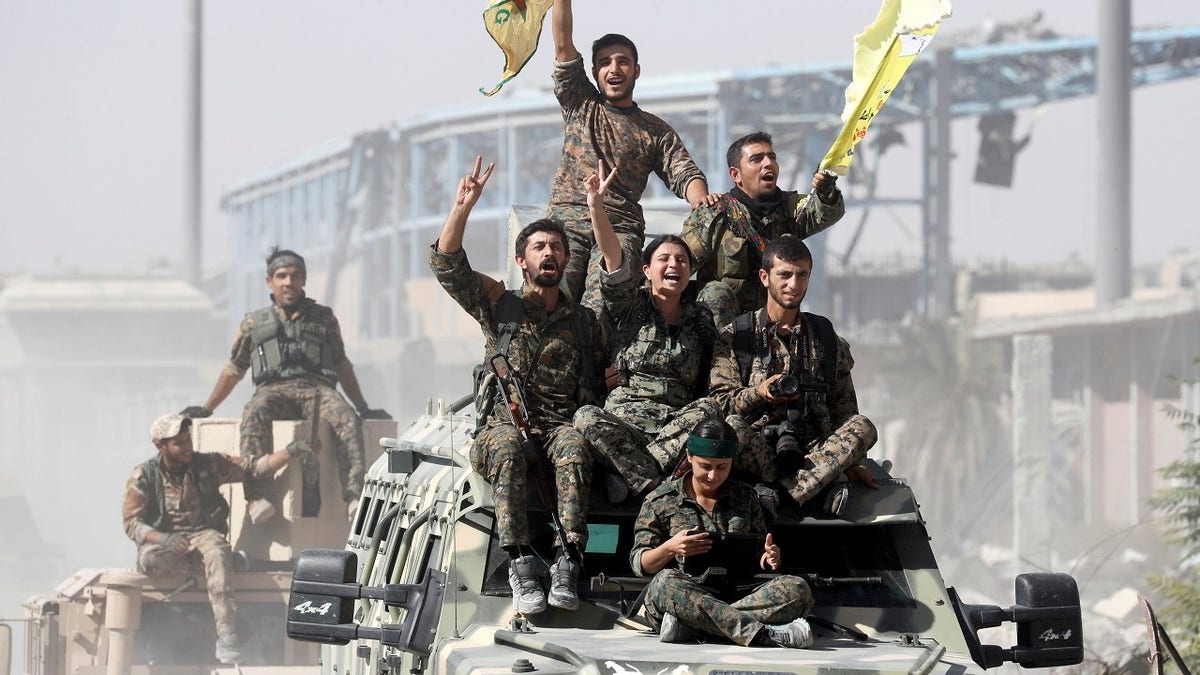
Syrian Democratic Forces (SDF) fighters ride atop military vehicles as they celebrate victory in Raqqa against ISIS soldiers. (Reuters)
Now, ISIS is reportedly “regrouping and recruiting” in other chaos-torn nations as its leader, Abu Bakr al-Baghdadi, resurfaces in cryptic audio messages, urging “soldiers of Islam and caliphate supporters” to remain focused on their victory.
ISIS was dealt a massive blow Tuesday when most of Raqqa was liberated from the militant fighters' hold by U.S.-backed Syrian troops. A U.S. military spokesperson told Fox News the city, once considered the capital of the terrorists' so-called caliphate, has been 90 percent recaptured, with fighting remaining only in a few select pockets where hardline militants have holed up.
It’s unclear how -- or if -- Baghdadi plans to maintain or recapture ISIS' lost territory in Syria and Iraq. The leader’s establishment of a “caliphate” after seizing control of Mosul in 2014 signaled the group plan to branch into other countries. ISIS is reportedly operational in 18 countries, including Afghanistan, Pakistan and Libya, the U.S. National Counterterrorism Center said in an August 2016 report. It also has “aspiring branches” in Bangladesh, Indonesia and the Philippines.
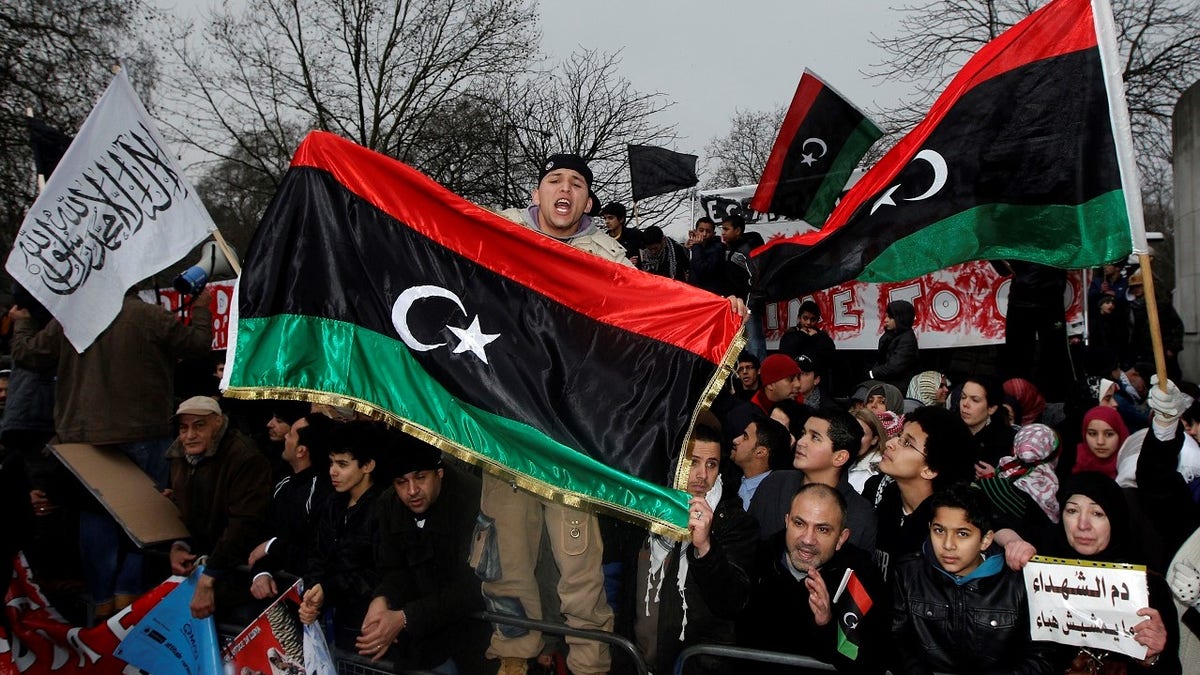
Demonstrators protest against Libya's Muammar Gaddafi outside the Libyan Embassy in London in 2011. (Reuters)
More fighters are expected to flow to Libya after the recent losses in Syria and Iraq. One U.S. official affiliated with the GNA, who requested anonymity, told Fox News in July the “political and security vacuum” that existed in Libya after longtime leader Muammar Qaddafi’s death in 2011 “allowed ISIS to take root.”
“ISIS still poses a threat not just to Libya,” the U.S official added. “But to its neighbors, Europe and the United States.”
Libya has been marred by conflict after 2011. The country also has Africa’s largest reserves. Its oil fields and reserves are located south of Sirte.
“ISIS still poses a threat not just to Libya...But to its neighbors, Europe and the United States.”
Joseph Fallon, Islamic Extremism expert and U.K. Defense Forum research associate, also told Fox News “ISIS has retreated south of Sirte to regroup” and that its global threat cannot be underestimated.
But the group's first success was in the taking of Raqqa.
The terror group seized the city on the banks of Euphrates River from Syrian rebels in January 2014. It was the first Syrian city to fall under the group’s control and helped to establish its power as ISIS began a reign of terror that included beheading, shooting, burning and drowning its opponents and hatching plots to export its brand of terror globally.
By June 2014, Iraq’s second-largest city, Mosul, also fell under ISIS control. The militants pushed Iraqi forces out and captured Tikrit, former Iraqi Dictator Saddam Hussein’s hometown, shortly after.
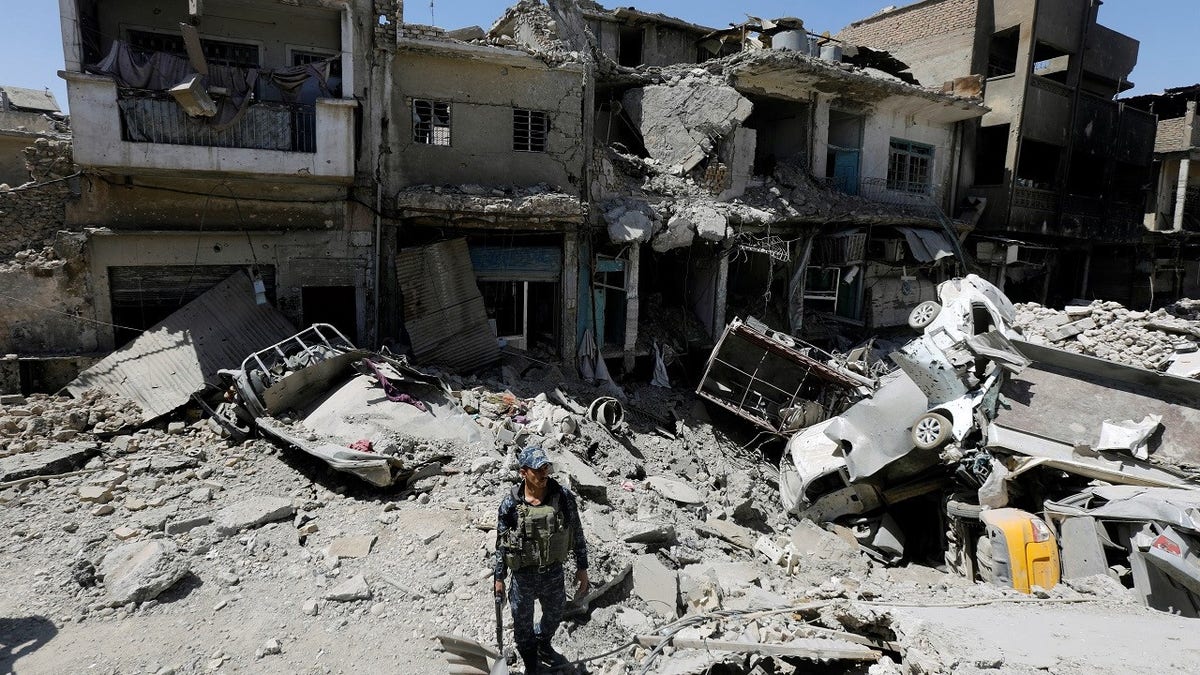
A member of the Iraqi federal police patrols in the destroyed Old City of Mosul, Iraq in August. (Reuters)
But after more than three years, ISIS lost control of the Iraqi city in July when a massive operation undertaken by U.S.-backed Iraqi forces squeezed the terrorists out. The city was declared "liberated" from ISIS' grip, but the destruction, after three years of brutal and bloody control, had a more lasting effect.
ISIS’ days in Iraq and Syria appear numbered. At its peak, ISIS held territory in which 10 million people lived. On Tuesday, its presence in Iraq was down to a sliver of land along the Euphrates river valley bordering Syria, the BBC reported through information released by the HIS Conflict Monitor.
The group still holds about 81 miles of the Euphrates River Valley inside eastern central Syria. The war on ISIS has already shifted to the Deir el-Zour province that holds much of Syria’s oil and gas resources — which has been a key component of ISIS’ success in maintaining power and funding its barbaric reign.
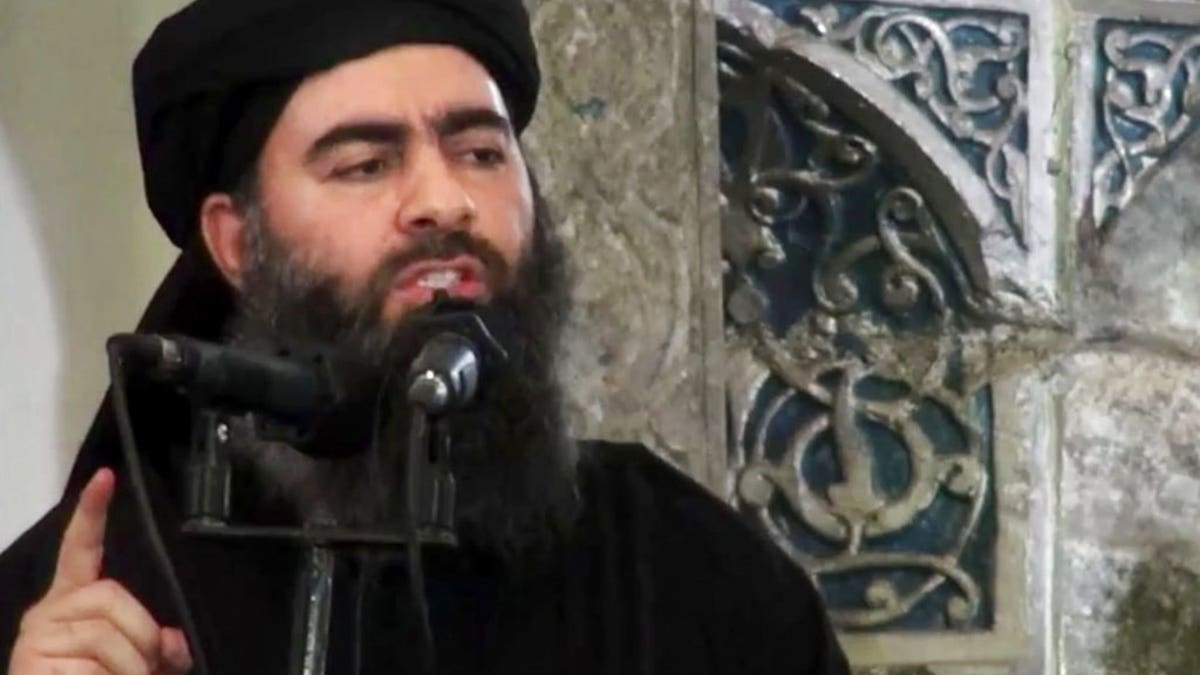
Abu Bakr al-Baghdadi emerged in September to address ISIS supporters. (AP)
Despite losing significant territory, Baghdadi reportedly surfaced to address supporters in a 46-minute audio recording in September. It’s unclear when the message was recorded, but that it purported to be from Baghdadi seemed to quash rumors the ISIS leader had been killed.
For the majority of the speech, Baghdadi attempted to appeal to ISIS supporters worldwide, according to an analysis Fox News obtained from MEMRI Jihad and Terrorism Threat Monitor. The global message may have been a nod to ISIS' dwindling territory in Syria and Iraq.
"Oh soldiers of Islam and caliphate supporters everywhere, intensify the successive attacks, and include the unbelievers' media headquarters and the ideological war centers among [your] targets," a voice believed to be Baghdadi said.
Fox News’ Hollie McKay and The Associated Press contributed to this report.
